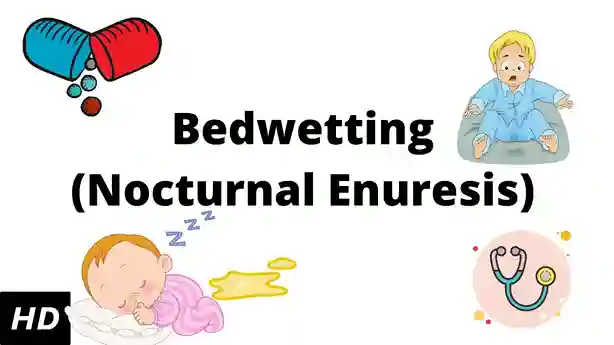Bedwetting
Bedwetting is the medical term. This condition occurs when a person urinates at night while sleeping on the mattress. However, this disorder can also occur during the day in children and adults (diurnal Bedwetting).
A person who experiences this condition does not intentionally urinate. Bedwetting is difficult to diagnose unless the child is over 5 years old.
Causes of Bedwetting
This condition can occur due to the bladder not responding to natural signals when it needs to be emptied. So, a person is not aware that they have urinated while sleeping. Some conditions that cause it, namely:
- Small bladder.
- Inability to hold urine.
- Having trouble sleeping.
- Taking medications that affect sleep quality.
Risk Factors for Bedwetting
There are several factors that can increase a person’s risk of experiencing this condition, namely:
- Having encephalitis (brain infection).
- Experiencing psychogenic, such as anxiety and subconscious emotions.
- Taking medications that affect bladder control.
- Experiencing obstruction along the urinary tract.
- Having a neurological problem that interferes with bladder control.
Symptoms of Bedwetting
There are several main symptoms of Bedwetting, including:
- Frequent bedwetting at night.
- Woke up with wet clothes from wetting the bed.
- Bedwetting at least twice a week for approximately three months.
Bedwetting can cause shame and anxiety in children who experience it. It can be a joke for their friends. If it happens for a long time, it can cause anxiety or depression in the long term.
Diagnosis of Bedwetting
The first step, the doctor will look at the medical history and perform a physical examination, to determine the medical disorder that is causing Bedwetting. Laboratory tests can also be done to check for several conditions that cause bedwetting condition.
Bedwetting is also often associated with side effects of certain medications. If no physical cause is found, the doctor will look at the child’s symptoms and behavior at the time.
Complications of Bedwetting
A person can feel frustrated by this condition because the root cause is not found. If this condition continues to occur, several complications can occur, such as:
- Feeling guilty and ashamed, resulting in decreased self-esteem.
- Unwillingness to engage in social activities, such as staying overnight at a friend’s house.
- Having a rash on the buttocks and genital area.
Bedwetting Treatment
In most cases, Bedwetting can disappear on its own without treatment, but it takes an average of three years. For medical action, consult a doctor first.
In addition, there are also drugs that can reduce urine production during sleep, so the risk of bedwetting can be reduced. Some examples are:
- Desmopressin acetate nasal spray or pol form.
- Chlorpheniramine maleate syrup.
- Oxybutynin tablets.
Prevention of Bedwetting
Not all cases of Bedwetting can be prevented, especially those related to anatomical problems. Having your child examined by a doctor after a diagnosis has been confirmed can help reduce problems associated with the condition.
As a parent, try to be positive and patient while your child is toilet training. This can help prevent the development of Bedwetting-related problems once your child gets used to it.

